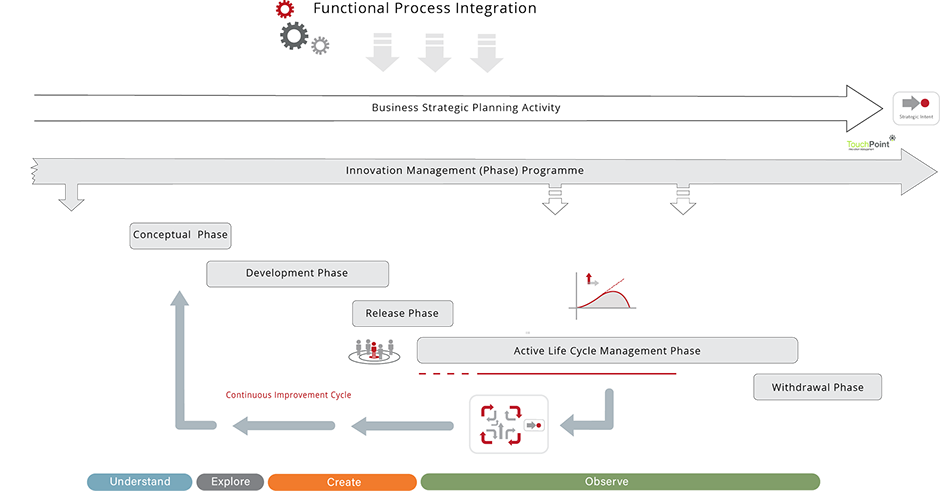Glossary
Logout
©Copyright Arcturus 2022, All Rights Reserved.
7
Terms & Conditions
|
|
|
|
Security & Privacy
Contact
INNOVATION PHASE
MGT. REPORT INNOVATION PHASE
|Product LifeCycle Planning Framework - Mgt. Report Innovation Phase
'Innovation is not just about having good ideas, it's about managing new ideas, improving old ideas, understanding and anticipating markets and technologies'
Innovation ultimately means you keep ahead of the competitors via a differentiated product offering (or the way the product is offered). New technologies and new products / services will provide far more business opportunities than by any other means. Innovation also means applied creativity, in other words, an idea is not ‘innovative’ until its representative of something ‘actual’.
The ‘IMP’ phase is primarily an activity for both generating and managing strategically aligned business ideas. Concepts and products emerging from this phase will be screened accordingly for (target market) suitability before being presented to a peer review group for acceptance and further development.
The type and content of the proposed idea will ultimately determine how it will be taken forward into subsequent phases of the product management process hereinafter. For example, a successful ‘New Product’ idea from the IMP phase will proceed to the Conceptual and Planning Phase and thereafter subsequent phases within the overall process. Alternatively, if the idea can be utilised directly in an existing product it will follow an appropriate route via the product enhancement process and ultimately join its product host in the Active LifeCycle Phase.
For the Product Manager the ‘Innovation Management Phase (IMP)’ will always exist in a perpetual form. i.e. successful ideas and concepts will be handed off appropriately to a PM phase at which point a ‘new’ Innovation Management Phase begins.
The Innovation Management Phase incorporates the following management activities;
• The formation of a Stakeholder Management team.
• Strategic alignment and context ~ setting the scope and boundaries.
• Situational analysis ~ Market Research and Intelligence.
• Advanced Development and Research study requirements.
• Production of Technology Roadmaps ~ Internal and External.
• 'Think Tank' Creativity ~ Creative and Idea generation workshops.
• Idea screening and selection.
• Peer Review ~ Idea / creative management








